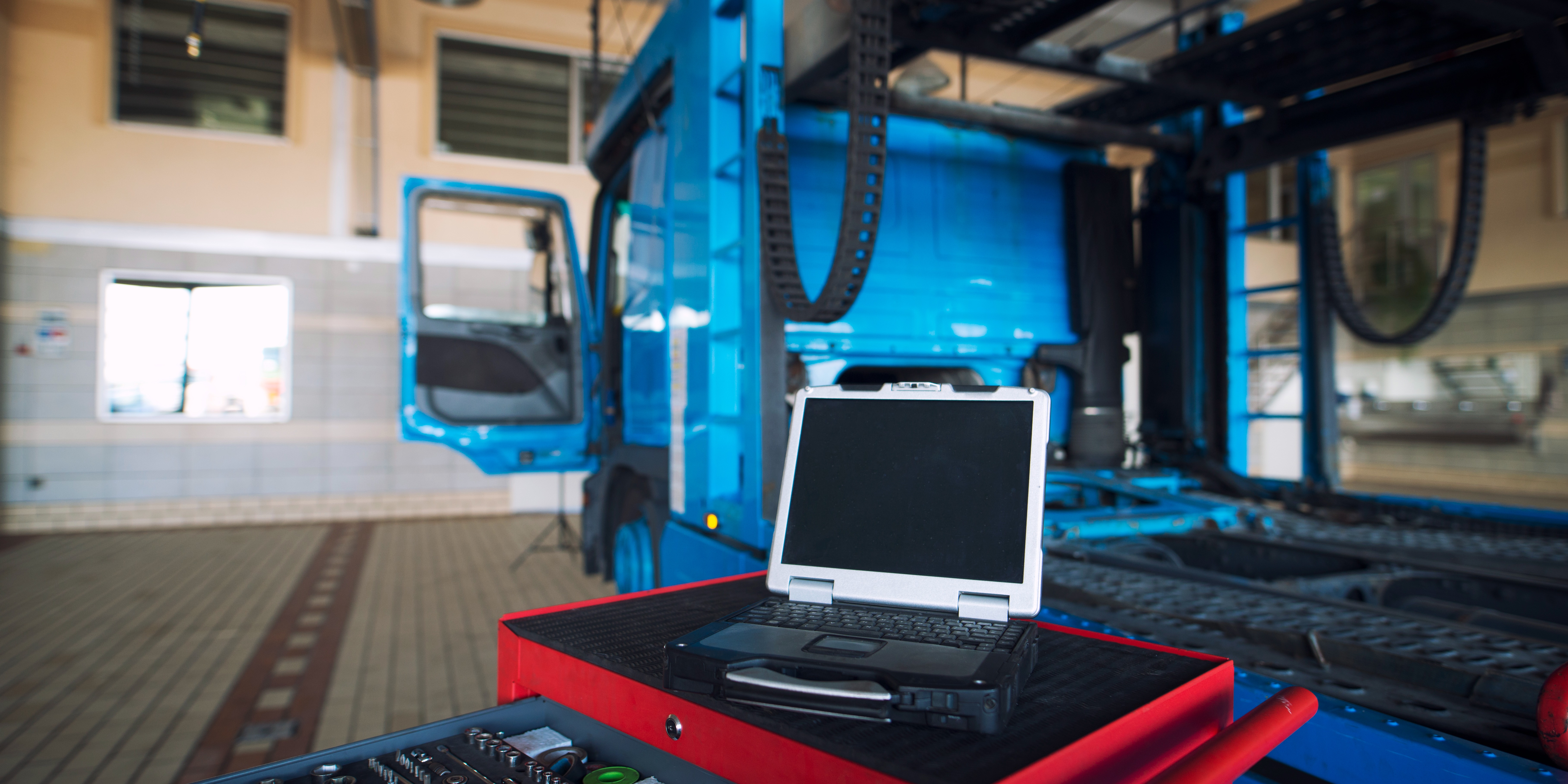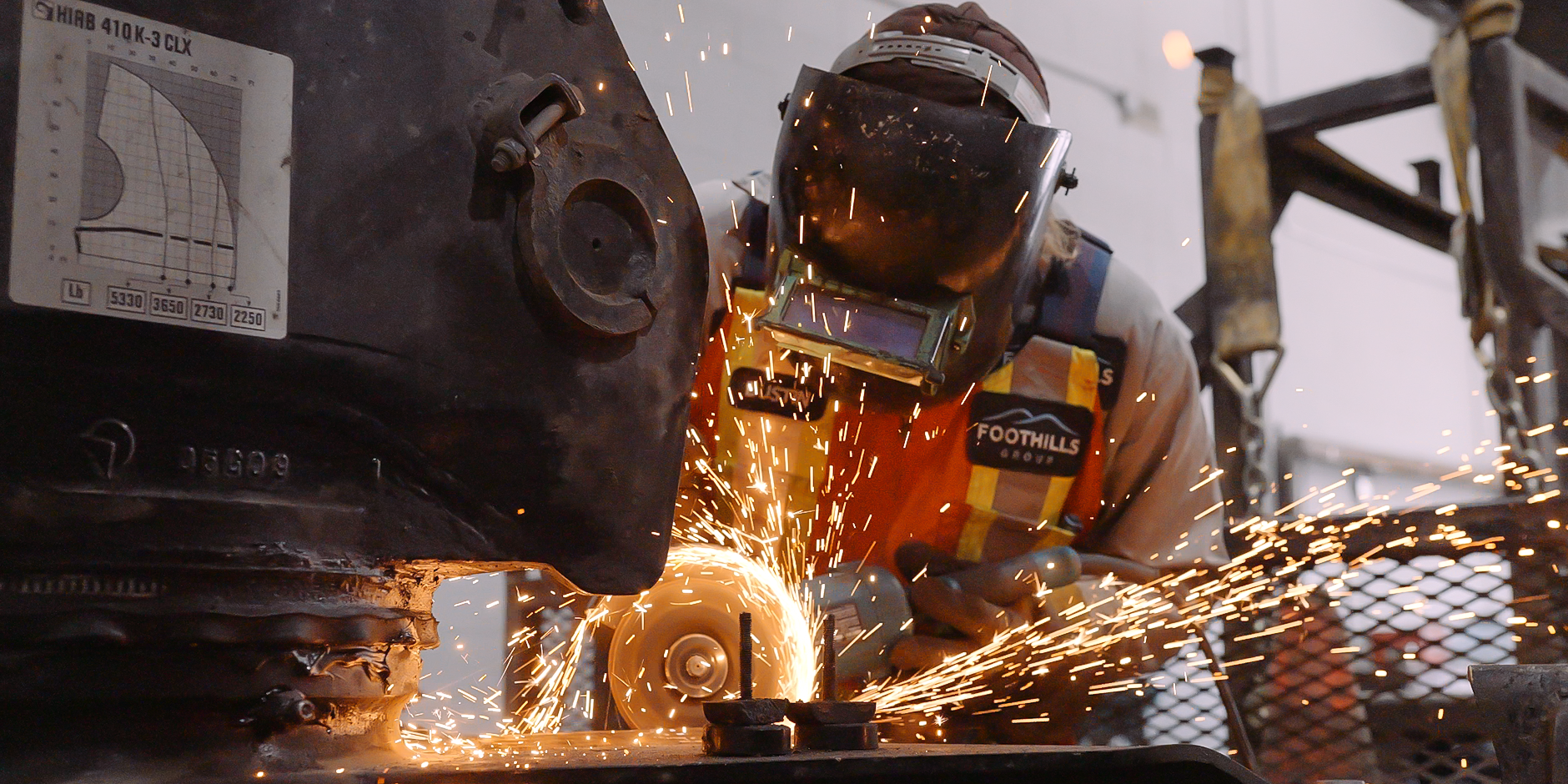How Mobile Truck Repair Shops Use Scheduling & Dispatch Software
If you manage an independent or mid-sized heavy-duty repair shop, chances are you’re juggling more than just wrenches. From dispatching techs to roadside calls, tracking parts, and updating customers, the old ways of using whiteboards, spreadsheets, and guesswork just don’t cut it anymore. Enter modern scheduling and dispatch software - designed specifically for heavy-duty repair businesses that need to coordinate mobile service, shop operations, compliance, and billing in one place.
This post explores how the right software tools can save your shop time, boost revenue, and reduce headaches by keeping your techs, customers, and back office on the same page. Whether you're sending diesel techs to job sites or running a high-volume bay operation, here's what you need to know.
What Is Scheduling & Dispatch Software for Heavy-Duty Shops?
Scheduling and dispatch software helps repair shop owners plan, assign, and track jobs in real time. In a mobile heavy-duty context, that means knowing exactly where your field technicians are, what job they’re on, and whether the right parts and information are available.
But it goes deeper. This software also streamlines customer communication, manages work orders from estimate to invoice, integrates with fleet telematics, and ensures compliance with DOT, DVIR, and IFTA standards.
Instead of chasing updates and approvals manually, the system does the heavy lifting - keeping everyone aligned without endless phone calls or paperwork.
Why Mobile Heavy-Duty Repair Shops Need Specialized Tools
Heavy-duty repair work is fundamentally different from auto repair. You're often dealing with:
- - Vehicles and equipment that weigh 50,000+ lbs
- - Roadside or on-site service calls with limited access
- - Fleet clients who expect fast turnaround and digital updates
- - Compliance requirements that can cost big if neglected
Generic car garage systems weren’t built for this world. They lack features like diesel VIN decoding, multi-location inventory tracking (including service trucks), or DOT-compliant inspection logging.
Modern heavy-duty-specific software platforms like ShopView and Fullbay were built for this complexity - helping you:
- - Dispatch techs instantly
- - Manage real-time work orders
- - Keep customers in the loop
- - Track inventory and parts usage across trucks
- - Handle PMs and inspections without missing a beat
Key Benefits of Using Scheduling & Dispatch Software
1. Real-Time Dispatch Visibility
See all your jobs, techs, and assets in one live calendar. Whether you're managing five mobile units or a dozen bays, drag-and-drop tools show where everyone is and what they're doing. This prevents double-booking, cuts idle time, and lets you adapt on the fly.
2. Field Tech Empowerment
Mobile apps let techs:
- - View job assignments and GPS directions
- - Clock in/out from the field
- - Attach photos and notes to work orders
- - Collect digital signatures or payments
Technicians don’t need to call in or fill out paper forms later. Everything syncs automatically.
3. Faster Job Turnaround
No more lost time waiting on approvals or parts. Integrated systems send real-time alerts when jobs are ready, parts are in, or approvals are needed. Shops using platforms like ShopView have reported finishing work orders 30% faster.
4. Compliance Made Easy
Track and document:
- - DOT inspections
- - DVIR defects
- - PM schedules
- - IFTA mileage and fuel logs
This reduces admin time and helps your customers avoid fines, breakdowns, or audit headaches.
5. Improved Customer Communication
No more "Is my truck done yet?" calls. Systems can text or email customers automatically:
- - When jobs start
- - If new issues are found
- - When units are ready
Some platforms even provide client portals to view status, approve estimates, or see repair history.
6. Inventory & Parts Control
Mobile shops often lose time hunting for parts. With real-time inventory across trucks and locations, your techs know what’s in stock and where. Reorder alerts and vendor integration help avoid downtime and keep margins healthy.
Top Scheduling & Dispatch Platforms for Heavy-Duty Shops
Here’s a quick breakdown of key platforms built (or adapted) for heavy-duty mobile repair:
ShopView
Built by diesel shop owners, ShopView features real-time dispatch, DVIR tracking, and VIN decoding. Shops using ShopView report saving 1.5+ admin hours daily and recovering $5,200/month in billable time.
Fullbay
Popular with field-heavy shops, Fullbay lets techs manage everything from job clocks to card payments via mobile. It also integrates with telematics and tracks compliance in real time.
RepairShopr
A flexible SaaS platform with scheduling, invoicing, and inventory. It works well for shops with lighter compliance needs, though some diesel-specific functions require add-ons.
Other Options
Tools like Shop Boss, EMDECS, or fleet-focused platforms like Fleetio can also support heavy-duty scheduling, depending on your shop’s structure and goals.
Real-World ROI: What Shops Are Reporting
Adopting digital dispatch platforms pays off quickly. Here's what real shop owners are seeing:
- 1.5+ Hours Saved Daily per service manager from reduced paperwork and fewer status calls
- More Billable Time captured (1–2 hours per tech per day) by tracking wrench time
- 20–30% Higher Revenue from faster job turnaround and better inventory control
- Improved Customer Retention thanks to faster updates and fewer surprises
One Fullbay user discovered they’d missed billing a $6,000 part pre-software. Another ShopView customer increased annual revenue by over $110,000 just by tightening operations.
What to Look for in a Dispatch Platform
To make sure your investment pays off, focus on:
- Mobile-first design: Can techs clock in, view work orders, and attach photos from their phone?
- Live dispatch dashboard: Can managers view all jobs and techs at a glance?
- Telematics integration: Does it pull in fault codes or mileage data?
- Compliance tools: DOT inspections, PM alerts, DVIR tracking, and IFTA support
- Inventory visibility: Track parts across shop and trucks, with low-stock alerts
- Customer communication: Can you text updates, share photos, or allow portal access?
- Analytics: Reports on tech productivity, job turnaround, parts usage, etc.
Common Questions (And Snappy Answers)
Will this really save me money?
Yes. Shops using modern dispatch platforms typically report 20–30% more revenue through efficiency and captured billable time.
How hard is it to switch from a whiteboard?
Not hard. Most systems go live in 2–4 weeks with basic import and short team training.
What if my techs work in remote areas?
Most apps work offline and sync when back online, so no data is lost.
Will my data be safe?
Cloud vendors encrypt data and back it up daily - far safer than a desktop file.
Can it talk to my fleet’s telematics system?
Yes - many platforms pull in DTCs, mileage, and DVIR defects via API.
Final Takeaway: Time to Ditch the Whiteboard
Mobile heavy-duty shops have complex needs - but the right dispatch and scheduling software simplifies everything. From real-time job tracking to fast approvals, compliance management to billing accuracy, today’s tools can turn your operation from reactive to razor-sharp.
Start by tracking your team’s current time lost to admin, delays, or double entry. Then book demos with platforms like ShopView or Fullbay. Within a month, you could be running tighter, turning more wrenches, and keeping trucks moving - yours and your customers’.
Ready to streamline your mobile operations? Time to put software in the driver’s seat.
.png?width=1500&height=1500&name=11%20(1).png)







%20-%20Copy.png?width=1500&height=1500&name=2%20(1)%20-%20Copy.png)

.png?width=1500&height=1500&name=1%20(1).png)







